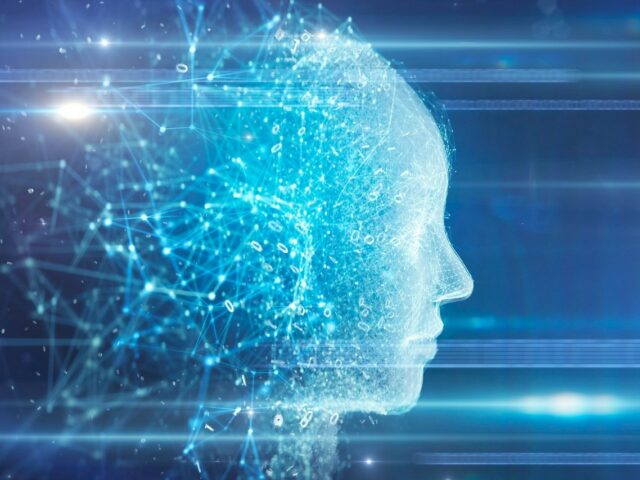Artificial Intelligence (AI) has come a long way since its inception, evolving from science fiction to real-world applications that are transforming industries and reshaping our daily lives. As we venture further into the 21st century, the future of artificial intelligence holds boundless possibilities and challenges that are poised to redefine the way we work, live, and interact with technology. In this blog post, we’ll explore the exciting horizons of AI and envision what lies ahead for this transformative field.
I. The AI Revolution Thus Far
To appreciate the future of AI, let’s first take a brief look at how it has revolutionized various domains. AI has already made its mark in industries such as healthcare, finance, and transportation. Medical professionals leverage AI for disease diagnosis and personalized treatment plans, while financial institutions employ AI algorithms for fraud detection and trading strategies. Self-driving cars are becoming a reality, thanks to AI-powered sensors and machine learning algorithms.
II. Enhanced Human-AI Collaboration
The future of AI will be marked by an even deeper integration between humans and machines. Rather than replacing jobs, AI will augment human capabilities and lead to the creation of new roles. For instance, AI-driven tools can assist doctors in making more accurate diagnoses, allowing them to focus on patient care. In the workplace, AI will handle routine tasks, freeing up employees to engage in more creative and strategic endeavors.
III. Ethical Considerations
With great power comes great responsibility, and AI is no exception. As AI systems become more sophisticated, ethical concerns surrounding their use become increasingly important. Issues such as bias in AI algorithms, data privacy, and the impact of AI on employment must be addressed proactively. The future of AI hinges on the responsible development and deployment of these technologies.
IV. AI in Education
The education sector stands to benefit greatly from AI. Personalized learning experiences tailored to individual students’ needs can be created through AI-powered adaptive learning platforms. Teachers can leverage AI to gain insights into student performance and provide targeted support. Furthermore, AI can assist in automating administrative tasks, allowing educators to focus on teaching.
V. Healthcare Revolution
AI’s potential in healthcare is vast. Predictive analytics can help identify potential outbreaks and allocate resources efficiently. Robotics and AI-assisted surgeries are becoming more prevalent, offering greater precision and reducing the risk of human error. Drug discovery processes are being accelerated through AI, leading to the development of new treatments and therapies.
VI. AI and Climate Change
The future of AI intersects with one of the most pressing global challenges: climate change. AI can optimize energy consumption, predict weather patterns, and enhance environmental monitoring. By analyzing vast datasets, AI can help develop sustainable solutions and mitigate the impact of climate change.
VII. Natural Language Processing
Natural Language Processing (NLP) is an exciting frontier in AI. The ability of machines to understand and generate human language is improving rapidly. This has implications for translation services, customer support, content creation, and even bridging language barriers to foster global communication and understanding.
VIII. Quantum Computing and AI
The convergence of quantum computing and AI promises to revolutionize the field. Quantum computers have the potential to tackle complex problems that are currently beyond the reach of classical computers. AI algorithms can harness this power to solve optimization problems, cryptography, and simulations at unprecedented speeds, opening up new frontiers in science and technology.
IX. Autonomous Systems
The future of AI is synonymous with autonomous systems. Autonomous vehicles, drones, and robots are set to play pivotal roles in transportation, logistics, and manufacturing. These systems will rely on AI for decision-making, navigation, and adaptation to dynamic environments, making them safer and more efficient.

X. The Future of Jobs
The fear that AI will lead to widespread job loss is a common concern. However, the future of AI suggests a more nuanced picture. While some jobs may become automated, AI will create new roles and opportunities in fields like AI ethics, data science, and AI system design. The key lies in reskilling and upskilling the workforce to adapt to the evolving job market.
XI. The Road Ahead
The future of AI is marked by immense potential and challenges. To ensure a positive trajectory, it’s essential for governments, businesses, and society at large to collaborate on setting ethical guidelines, regulating AI, and fostering innovation. Ethical considerations should be at the forefront of AI development, with a commitment to transparency and accountability. Feel free to visit Clic Clac Forum to get more useful tips and information about technology.
Conclusion
The future of artificial intelligence is brimming with promise, from enhancing human capabilities to addressing pressing global issues. As we stand on the threshold of this exciting frontier, it’s crucial to navigate the path forward with wisdom, ethics, and a commitment to harnessing the transformative power of AI for the betterment of humanity. The journey ahead may be challenging, but with responsible development and thoughtful innovation, the future of AI holds the potential to revolutionize the world in unimaginable ways.











